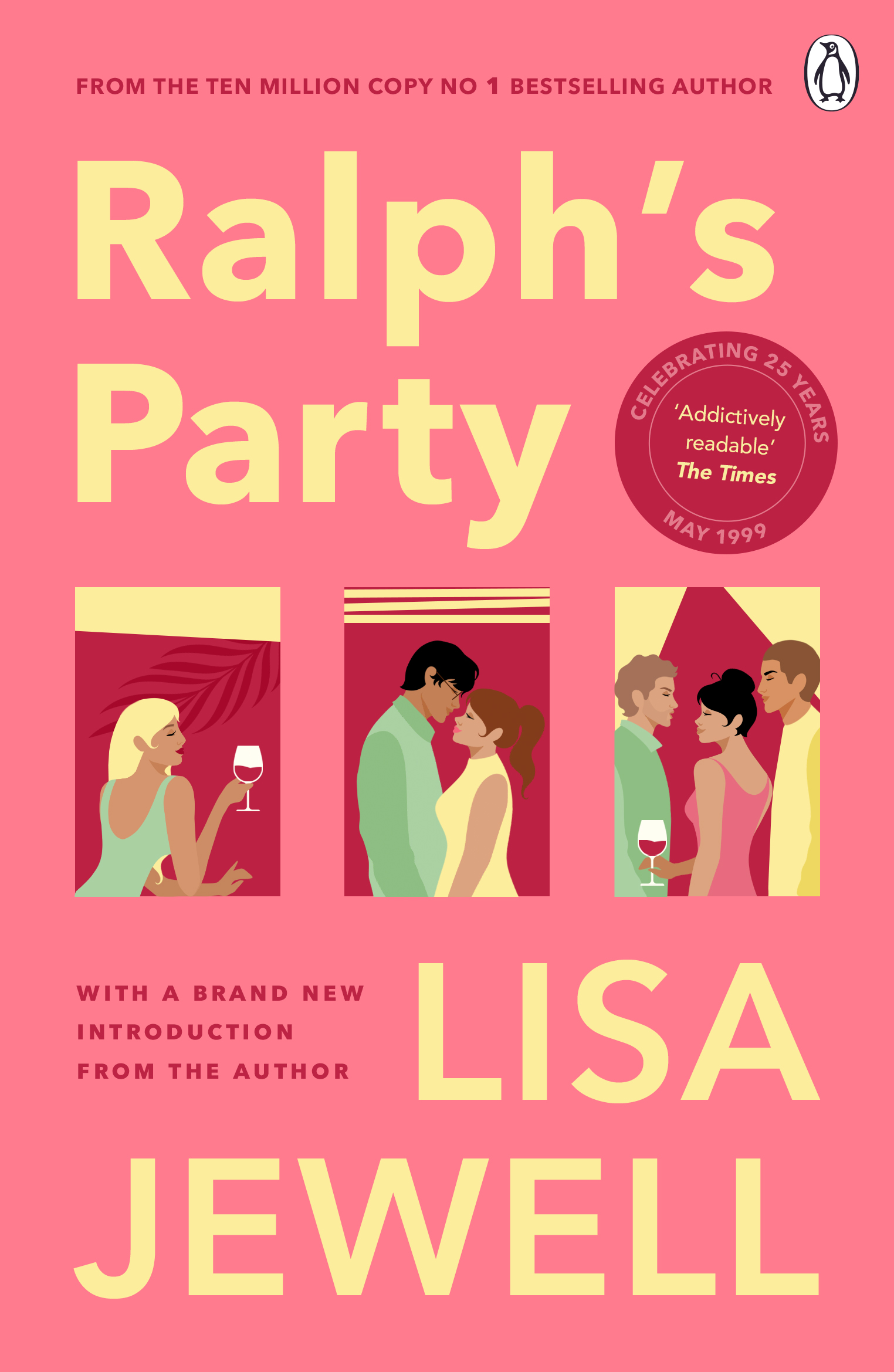The School for Good Mothers

As seen:
Reviews
It's not very often I don't finish a book, but that was sadly the case here. It got off to a reasonable start but I found the plot unconvincing in many ways - not just the central scenario of punishment and rehabilitation for child neglect, but also the characters, their relationships and reactions. It got too much when it (suddenly) became full dystopian / sci-fi and I abandoned it.
I was intrigued by the plot of this book, but unfortunately it just didn't work for me. I had a complete disconnect with the main character, who was completely incapable of accepting her wrongdoing or the seriousness of her actions. The all encompassing dystopian law enforcement was chilling, but the story fizzled out for me and became a bit monotonous. Disappointing.
Frida, a young single mother leaves her one-year-old alone at night to run to her office to retrive some files. She thinks she will be very quick and it will make no difference since the baby is tuck safelu in the crib asleep. The baby wakes and starts crying. After 3 hours of this the neighbors call the police who intervene. The baby is taken from her, given to his father and Frida is sent to a reeducation "prison" to learn how to be a good mother. It seems that in dystopian society there are rigidly proscribed ways to do things.
From the very beginning I was never able to connect with Frida or understand her behavior. She never seems to accept that leaving her child alone was a very wrong thing to do so learning her lesson seems never to happen. This book was not at all enjoyable for me.
I did not enjoy this book. Initially I found the premise almost too disturbing to read the pages. It made me too uncomfortable, brought back buried feelings from far-off days of new motherhood with a colicky baby, the total mismatch of expectations butting against the reality of 24hr childcare on little to no sleep. This was too much tension. Until Bad Mother is sent off to camp to be made into Good Mother, followed by page after page of rinse-repeat torture porn punishment mixed with education and dollops of shame, tedious after a bit so I skimmed. Then the ending, which wasn't what I expected and felt decidedly let down. So, excellent story idea but lacking in the telling.
Frida is an exhausted single mother of a daughter, who has very little support. She is trying to keep her life going, her job going and feels she is being judged by her ex partner, his new partner, her parents, the world.
She leaves her child alone at home for a few hours, whiles she goes into the office to collect some work. This brought up the first heated discussion for our group - Would you ever leave your young child at home alone? Frida just didn't seem to grasp the possible dangers of this situation, she was sorry, but sorry for what leaving her child or getting caught leaving her child?
The police and authorities step in and take the child away from Frida and put her in the care of her father. The authorities steps then seem to become more bizarre and controlling. The story changes its mood into a more dystopian future. With Frida having to attend a school and re-train to become a "Good Mother".
This book got our group discussing our own parenting experiences, whether we felt judged as parent. Whether we could have coped in the "School for Good Mother's"? The majority of us deciding we would have failed in most cases.
A very thought provoking read.
Frida is the child of Chinese immigrant parents who have sacrificed a lot to give their daughter the best possible chances in life. Frida is married to Gust who has left her for a younger woman but the relationship is still amicable and they share the responsibility for their young daughter, Harriet. Frida is struggling to juggle work and childcare as a single Mum and feels as though she has let her parents down. Eventually all of this gets on top of her and she has a particularly bad day with a “lapse of judgement” which is to have far-reaching consequences. It transpires that society is not quite as we know it and that the state is a Big Brother type organisation determined to wipe out bad parenting. The story of how this all pans out for Frida is told in this book.
This is a good premise for a book and I had high hopes. I found the start of this book both chilling and disturbing. I hadn’t read the preamble so had no idea in which direction it was heading - as a result I had an underlying sense of foreboding and dread which was heightened by the fact that everything appeared to be so normal. Lurking beneath the surface was something malevolent and insidious and it made for a very uncomfortable read. The suspense was palpable and I just wanted to run away from it. The author did very well indeed to create this atmosphere. The premise also provides a platform for very interesting observations on both parenting and the dangers of state control.
However, it was not all good. Once the wayward parents were moved into the state correctional facility the suspense dissipated in a puff of smoke and the rest of the book (sadly the majority of it) became monotonous, mundane and a little boring.
I also had a big problem with Frida’s “lapse in judgement” which led to the subsequent events coming into play. It is not a lapse in judgement. It is a fundamental flaw as she seemed to have no concept of there being a problem with leaving a baby completely alone in the house for hours. I have never had children and don’t have a maternal instinct in my body but even I can see that this is appalling behaviour and totally unacceptable. Initially Frida only seemed to be upset because she had been caught and not because of what she had done. A degree of remorse did eventually appear but the impression given was that it was purely because it was expected of her and would placate the authorities, not because she fundamentally believed that she had done anything wrong.
It is difficult to rate this book as I can’t honestly say that I enjoyed it at all. I spent the first part wanting to give up because it was too creepy (that in itself is not necessarily a bad thing) and the rest of the time suffering from boredom (that definitely is a bad thing). I do feel as though it may be a well-written book that has a lot of deep and meaningful things to say about parenting and state control, but these aspects didn’t really come across to me and I have had to rate it on that basis.
I can’t really bring myself to recommend this book as, for me, it didn’t quite deliver. However I applaud the author on an ambitious debut novel based on an interesting premise and which tackles a challenging subject. Jessamine, please don’t give up.
The blurb on the back of the ARC describes this as "explosive and thrilling." There are many ways to describe The School for Good Mothers, many of them positive, but "explosive" and "thrilling" certainly aren't it.
I wanted to like this novel. The set-up is well done; we're thrown straight into the story as Frida returns from her "horrible day" to discover the government has taken her child. At first the novel feels like realistic fiction, but soon enough we go full-blown dystopia when Frida gets to the School. While I was initially a bit thrown by the blend of realism and dystopia, ultimately I'm impressed by how Chan situates her dystopia in such a normal-seeming world that I actually believed it.
Unfortunately, once you get past the setup, the story itself is pretty dull. Frida's year at the school has no plot momentum at all. Nothing significant happens. Frida has no important decisions to make. She doesn't grow at all as a character. She learns nothing about what it means to be a good mother (either from the school or in spite of it). If fiction is about a character having to make decisions and grow in order to overcome obstacles, Frida does nothing of the sort.
As other reviewers have noted, the story is also thematically confusing. It's partly about middle-class motherhood, but most of the mothers at the school are working class. It's also partly about race, and I appreciated that Frida was from an Asian immigrant family, but it was ultimately unclear quite what was being said about race. There's also some stuff about gender, as the men in the Fathers' School are treated better, but it's also unclear what the point is there.
I hesitate to say this, but I think the flaw in The School for Good Mothers is the overall lack of a point. In many ways, Chan's use of nuance is impressive; she depicts mothers whose crimes range from the obviously serious (locking children in a basement) to the mostly benign (leaving her daughter with a slightly-too-young babysitter). By putting all these mothers together in the same school, Chan forces the reader to ask themselves: where is the line? When should the government intervene? But, while her setup of the question was well-done, the rest of the novel gives us very little to develop our understanding of the topic. The government in the story is unquestionably bad, actively working against the mothers rather than with them, and the school's curriculum contains nothing at all that helps us understand what it means to be a good mother. The novel addresses quite a few themes and addresses countless situations a mother might find herself in, but ultimately says very little about anything.
Overall, this book is a unique story in its blend of dystopia and realism. I was impressed by the setup and prepared to really enjoy the story, but the lack of plot caused me to lose interest. While things picked up in the end, the slow middle meant that all the ideas I thought the novel was going to address just got a little muddled. There's a lot here that could have been interesting, but for a novel that was supposed to be "explosive and thrilling," it simply wasn't.






